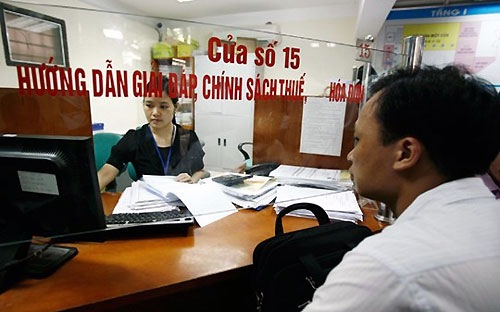Inspection services are commercial activities aimed at determining the actual condition of goods, the results of service provision, and other contents as requested by the customer.
1. Overview of Commercial Inspection Services
1.1. According to Article 254 of the Commercial Law 2005, inspection services are understood as “commercial activities whereby a trader performs necessary tasks to determine the actual status of goods, the results of service delivery, and other contents at the request of customers.”
Thus, it can be seen that the Commercial Law 2005 has expanded the concept of inspection compared to the Commercial Law 1997, whereby inspection not only includes goods inspection but also service inspection. This is a new point related to inspection services in the Commercial Law 2005.
1.2. Characteristics of commercial inspection services
Commercial inspection services have the following characteristics:
First, the entities involved in the commercial inspection service relationship include two parties: the inspection service provider and the customer who requests the inspection of goods or services. Accordingly, the commercial inspection service provider must be a trader and must meet the legal requirements. The party requesting the commercial inspection does not necessarily have to be a trader. They can be organizations, individuals, state agencies, etc., demanding goods or service inspections for their purposes.
Second, the content of commercial inspection activities includes all activities related to the appraisal, determination of quantity, quality, packaging, value of goods, origin, losses, safety standards, hygiene standards, epidemic prevention, service delivery results, service delivery methods, and other contents at the request of customers (Article 255 of the Commercial Law 2005).
Third, conclusions in commercial inspection activities are documented in the form of an inspection certificate. This document certifies the actual status of goods or services according to the inspection contents requested by the customer. The inspection certificate must be signed by the authorized representative of the inspection service provider, signed, and stamped according to the registered business seal with the competent authority. The inspection certificate is only valid for the inspected contents. The inspection service provider is responsible for the accuracy of the results and conclusions in the inspection certificate. The legal value of the inspection certificate is stipulated in Articles 261 and 262 of the Commercial Law 2005.
Fourth, the inspection service is a commercial activity aimed at making a profit. Traders providing commercial inspection services operate as an independent and regular profession and are remunerated.
Fifth, the legal basis for commercial inspection services is the commercial inspection contract.
2. Conditions for trading commercial inspection services
As analyzed above, inspection services are commercial activities. The conditions for trading commercial inspection services are stipulated in Article 257 of the Commercial Law 2005. The Commercial Law 2005 has supplemented several provisions related to this issue to enhance the capacity of traders providing commercial inspection services, thereby improving the quality of this activity in the market. To engage in commercial inspection services, traders must meet the following conditions:
2.1. Be an enterprise established in accordance with the law
Therefore, traders providing commercial inspection services must be organized in the form of an enterprise as per the law on enterprises. According to Clause 7, Article 4 of the Enterprise Law 2014: “An enterprise is an organization with its own name, assets, transaction office, registered establishment under the law for business purposes.” Typically, commercial inspection service enterprises are established as joint-stock companies or limited liability companies. Business households are traders but are not enterprises and therefore cannot engage in this service. Foreign traders establishing enterprises providing commercial inspection services must comply with Vietnamese law and international treaties to which Vietnam is a member. These enterprises operate independently and specialize in this service, being granted a business registration certificate for commercial inspection services by competent state authorities. This is one of the conditional business sectors.
2.2. Have qualified inspectors to perform commercial inspections
The standards for inspectors are stipulated in Article 259 of the Commercial Law 2005, specifically inspectors must meet the following standards:
(i) Have a university or college degree suitable to the inspection field requirements;
(ii) Have a professional certificate in the inspection field if required by law;
(iii) Have at least 3 years of experience in the field of goods or service inspection;
Commercial inspection is a conditional business sector, thus the standards for inspectors as stipulated in the Commercial Law 2005 are stringent due to the complexity of this field, which requires expertise and knowledge to accurately and effectively conduct inspections. The Commercial Law 2005 stipulates that the director of the enterprise providing inspection services recognizes inspectors and is liable under the law for their decisions.
2.3. Have the ability to perform the process, methods of goods, service inspection according to the law, international standards, or widely adopted practices in goods and service inspection.
Given the particular nature of commercial inspection activities, this is a mandatory condition for traders engaging in this service. Inspection is a specialized activity demanding high scientific, technical, and professional expertise. The importance of inspection services relates not only to the fate of goods, services, or enterprises needing inspection but in many cases also involves human safety - the consequence of incorrect inspection results. Therefore, this is an extremely important condition in commercial inspection activities. The Commercial Law 2005 requires traders engaging in commercial inspection services to have both the capability and methodology to conduct goods and service inspections in their specialized business field.
3. Perfecting legal regulations on commercial inspection services
The Commercial Law 2005 includes many new and improved provisions on inspection services in general and conditions for trading commercial inspection services in particular compared to the Commercial Law 1997. However, to meet practical requirements and enhance the efficiency of enterprises operating in this sector in the future, it is necessary to research, amend, supplement, and perfect several legal regulations on commercial inspection services, specifically:
3.1. Research and supplement regulations in the Law requiring the director of enterprises providing commercial inspection services to be an inspector. The Commercial Law 2005 specifically regulates the standards of inspectors and stipulates that the director of an enterprise providing inspection services recognizes inspectors without detailing whether the director must necessarily be an inspector. Thus, if the director is not an inspector (with stringent standards in Article 259), what guarantees that they have the authority to recognize inspectors and be responsible under the law for their decisions?
3.2. Specify the business conditions for commercial inspection services in a more detailed manner. The current regulations on business conditions for inspection services are quite general and lack specific guidance, resulting in inconsistent understanding and application in practice. To be specific: regulations on professional conditions for inspectors; conditions on the ability to perform the process, methods of goods, and service inspection according to the law, international standards, or widely adopted practices; conditions for traders providing inspection services to be requested by state agencies. Particularly, detailed guidance on the third condition for trading commercial inspection services "having the ability to perform the process, methods of goods inspection..." should be added. This provision aims to increase the accuracy of inspection results, protecting the interests of customers using the service, but it is too general, lacking specific detail on determining what "having the ability" means.
3.3. Revise and supplement regulations on penalties for violations and compensation for damage in case the inspection certificate has incorrect results to ensure consistency with general regulations on penalties and compensation stipulated in Article 300 and Article 303 of the Commercial Law 2005 and create a reasonable deterrent mechanism against incorrect inspection certificate issuance by inspection service enterprises. The provisions in Clause 1 and Clause 2 of Article 266 of the Commercial Law 2005 should be revised to avoid confusion; the distinction of fault elements in Article 266 of the Commercial Law 2005 is illogical with Article 300 and Article 303 of the Commercial Law 2005.
Additionally, it is also necessary to research and add regulations on equipping the necessary minimum machinery and equipment for inspection activities as one of the standards for traders providing commercial inspection services, and regulations on inspector cards...
LNT
REFERENCES
Hanoi Law University, Commercial Law Textbook (Volume 2), People's Police Publishing House, Hanoi, 2006.
Decree 20/2006/ND-CP dated February 20, 2006, detailing the implementation of the Commercial Law on commercial inspection service business.
Source: Ministry of Justice
 Article table of contents
Article table of contents





.Medium.png)
.Medium.png)
.Medium.png)
.Medium.png)
